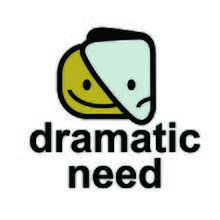Dramatic Need: Difference between revisions
No edit summary |
No edit summary |
||
| Line 61: | Line 61: | ||
{{charity-stub}} |
{{charity-stub}} |
||
[[Category:Defunct organisations based in the United Kingdom]] |
|||
Revision as of 19:35, 5 February 2024
 Logo | |
| Founded | 2005 |
|---|---|
| Dissolved | 2021 |
| Type | Non-profit charity |
| Registration no. | 1119443 |
| Location | |
Area served | |
| Method |
|
Key people |
|
| Website | web |
Dramatic Need was a UK-registered charity (number 1119443)[1] that sent international arts professionals (such as musicians, artists and actors) to host workshops in underprivileged and rural communities in Africa.[2] The charity promoted creative expression as a tool for conflict resolution, social development, gender empowerment and the assimilation of health messages in underprivileged communities.
The charity dissolved in 2021.[3]
History
The company was launched in 2005 in United Kingdom and Ireland.
Dramatic Need also provided art, music and film-making equipment to schools in South Africa and Rwanda. Volunteers on the Dramatic Need programme work with the children towards producing a performance or exhibition based on the issues that directly affect their communities. The charity was particularly effective in encouraging young people to discuss and challenge the stigma surrounding HIV/AIDS. The Official Patron of Dramatic Need was Her Excellency Dr. Lindiwe Mabuza, former South African High Commissioner to the United Kingdom of Great Britain and Northern Ireland. The Board of Trustees included the Oscar-winning film director Danny Boyle, and previously included the late South African-born actor Sir Antony Sher.
In an article for The Times in the United Kingdom on 11 November 2008, Dramatic Need trustee Danny Boyle described the charity's aims:
For children - and for many adults - art plays a vital role in helping them to express feelings and difficulties that they aren't otherwise able to articulate. Its importance is never greater than in post-conflict conditions. Of course, water, food, and first aid are essential during a crisis, but none of these things can restore human dignity to a person dying from disease or help a rape victim to cope with their outrage. To suggest that the only things that maintain our humanity are those that serve our biological needs seems to me palpably incorrect. We are not just what we eat. We are also what we feel, what we fear, what we love and what we hate. Unexpressed tensions find their strength in violence....If there is not a means to move beyond the hatred of the past, we will never move past violence.[4]
Significant supporters of the charity included Josh Hartnett,[5] Helena Christensen and David Walliams.[6]
On 14 November 2010, Dramatic Need sponsored the one time production of The Children's Monologues, directed by Danny Boyle. Held at the Old Vic Theatre in London, it featured the adapted stories of children’s first-hand experiences in South Africa being retold and re-interpreted by and performed by actors such as Sir Ben Kingsley, Benedict Cumberbatch, Tom Hiddleston, Gemma Arterton and Eddie Redmayne.[7]
See also
References
- ^ "Dramatic Need, registered charity no. 1119443". Charity Commission for England and Wales.
- ^ "What We Do". Dramatic Need. Archived from the original on 21 September 2013. Retrieved 17 February 2014.
- ^ "DRAMATIC NEED - Charity 1119443". register-of-charities.charitycommission.gov.uk. Retrieved 2024-02-05.
- ^ "Why the Congo needs art as well as food | Danny Boyle". London: Times Online. 2008-11-11. Retrieved 2009-02-24.
- ^ "Dramatic Need: Celebrity Supporters". Look to the Stars.
- ^ "Josh Hartnett To Art Africa". Looktothestars.org. 2008-11-26. Retrieved 2009-02-24."Josh Hartnett on Channel 5 News". YouTube.com. 2008-12-18. Archived from the original on 2021-12-15. Retrieved 2010-01-22.
- ^ "The Children's Monologues". The Crossed Cow. 16 November 2010. Archived from the original on 27 December 2013. Retrieved 17 February 2014.
External links
- dramaticneed.org - Archived
